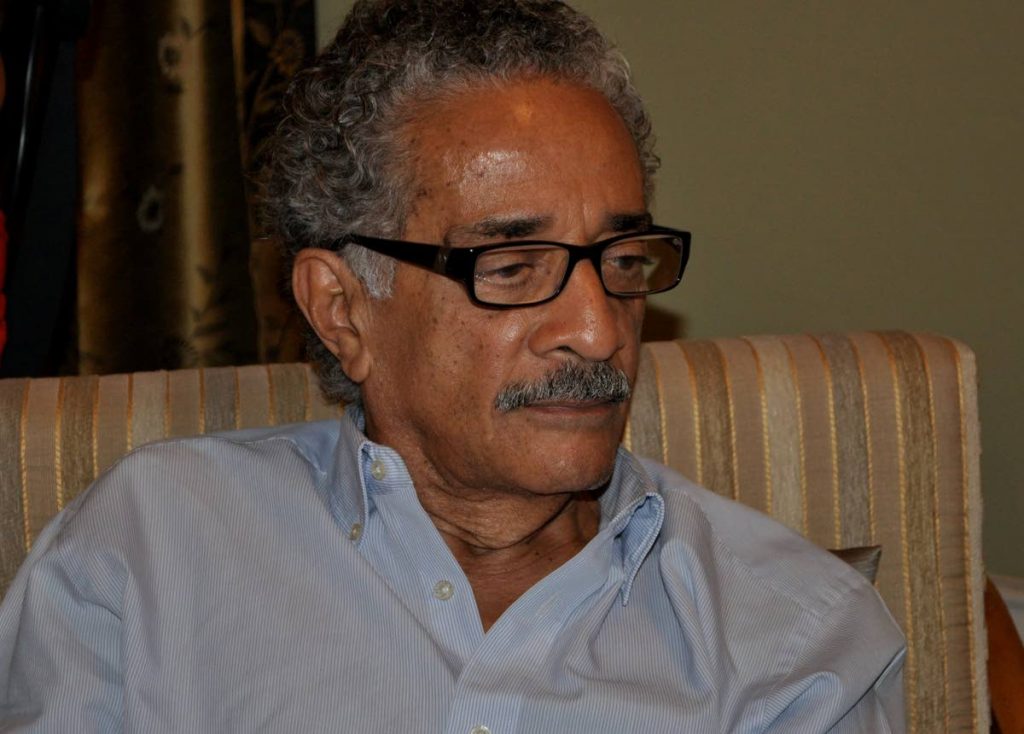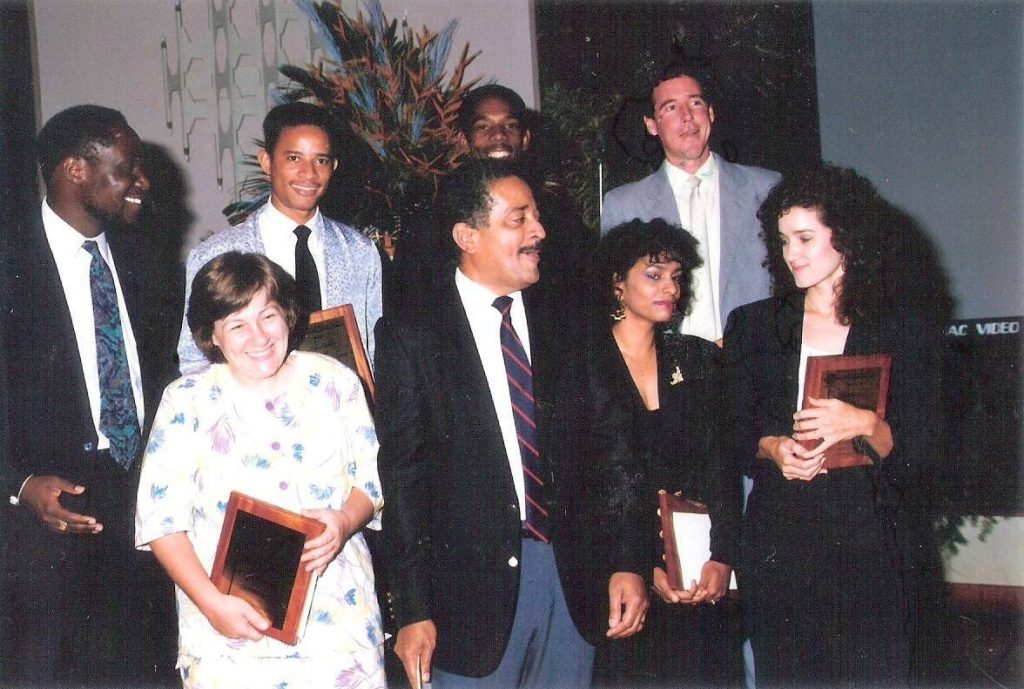Owen Baptiste – the disruptor of newsrooms

When I joined the Express, it was still housed in a nondescript newsroom on the ground floor of a converted cocoa warehouse. You could drive downtown late at night and buy copies of the paper literally hot off the press that was pounding away in its cavern a few feet from the pavement.
Owen Baptiste gave me that job, as he’d given me my first, which was writing for his local version of People magazine. He was in mellow mode in those days, except that when he read the book review he’d wanted as a sample of my work, he asked, waspishly, typically, “Did you write this by yourself, or someone helped you?”
Some time after he went back to the Express, I found my way there too, going full-time after writing a column for the paper for a while. The newsroom had recently been computerised, with big, boxy machines, little more than networked typewriters; the paper was still built by gluing long strips of copy onto dummy pages, where stories were literally cut, by the stone subs, with a scalpel, if they were too long and hung over the end. Columnists still dropped off their typewritten offerings weekly. Letters to the editor were mostly handwritten. There was no such thing as e-mail.
In those days, half the time even the phones didn’t work. To get photos from the San Fernando office, the negatives had to be entrusted to taxi drivers in the hope that when they reached town they would remember to drop them off by the big press room gates on Charlotte Street.
Not long before, around the corner, the newsroom used to open directly off Independence Square, and during Carnival season, Keith Smith and Peter Ray Blood would have to keep an eye on the door, in case some irate calypsonian stormed in to take physical revenge for an unflattering review of his tent.
As well as the main paper, the Sun somehow appeared on weekday afternoons, apparently written almost single-handed by Judy Diptee despite the vast (compared to today’s newsrooms) number of staff. Probably its main attraction was a contest in which readers had to name the celebrity owner of a pair of disembodied legs: the “Guess Who Foot It Is” contest, as news editor Leonard Robertson called it, scrambling for suitable photos.
Plenty of work must have happened in the newsroom, but it wasn’t cool to be seen to be working. Raoul Pantin strolled up and down muttering, “This is pressure!” Leonard and subeditor David Chase swapped lame puns. Lawrence Bridgewater shrieked scandalous things from the subs’ desk.

Omatie Lyder fretted about how the Sunday paper was to come out. Chief reporter Andy Johnson lounged with his tie always, always tossed over one shoulder, competing unofficially with David Renwick as smoothest guy in the newsroom. Keith Smith christened the baby-faced Sheila Rampersad “the Whe-whe Queen of Laventille” after she ventured up the Hill to unearth its secrets.
OB, as he was known – though Leonard just called him “Chief” – wasn’t much in evidence, at least during the day: his office was upstairs, until the newsroom was rebuilt.
Nevertheless, a newspaper takes on the character of its editor-in-chief. OB was inventing what a local paper looked like, coming up with all sorts of innovations, always giving unlikely people chances, always trying something new, always aiming higher. Nowadays he’d be called a disruptor.
Through him BC Pires gave up lawyering and began writing full-time. Suzanne Lopez, miraculously, produced colour pieces, as though out of a hat, on typically Trini things she’d spotted – and wrote about them every single day. I worked for a while under Niala Maharaj, whom OB had made Sunday editor at a ludicrously young age. Kathy Ann Waterman was there too, raising standards in feature writing, before she reinvented crime reporting.
With the help of BC and subeditor Vaneisa Baksh, I produced a weekly arts section for the Sunday paper, left entirely to our own devices. Wayne Brown came in occasionally: he too had been given the chance to try something new, a literary newspaper column.
There were fewer rules, less pressure of time. Reporters – as they should – went out and looked for stories, and used their own words (there were fewer press releases, and you couldn't copy and paste). At least to outsiders, it must have looked pretty close to anarchy, until Lennox Grant came back from Canada and began to impose some order on the chaos. In the early days I learned the job less by being taught than by trying things and seeing whether they turned out ok.
I don’t know how, using those primitive methods, we got the paper out every day. But the newsroom was bursting with journalists and ideas, and OB always welcomed both.
OB, being EIC, was still able to carve out time for his own column – in those days, No Sacred Cows, which was revolutionary in its range, its irreverence, its personal nature and the fact that somehow he wrote it daily. He was known as a brilliant layout man, and he brought into the paper people who became some of the best journalists the country has seen. But it must have irked him not to be able to devote himself to writing, his first and enduring love: this is one of those professions where, if you show aptitude in one area, they promote you so that you can’t use it, and make you do something completely different instead.
He bawled me out once, across the entire newsroom and in front of my editor: “That was a bad story you wrote on Saturday!” It wasn’t, actually, but I didn’t have the nerve to shout back. An EIC wouldn’t get away with getting on like that now.
OB was a man of mercurial temper: sometimes gentle, laughing helplessly through that droopy moustache; often snappish; rarely satisfied. He didn’t stay at any media house for long, before he gave up on the media; but then, it’s usually a bad sign if an editor-in-chief gets too comfortable in his or her seat. He was a difficult person, as all the best journalists are. There was no one like him, and his influence was and remains immeasurable.

Comments
"Owen Baptiste – the disruptor of newsrooms"